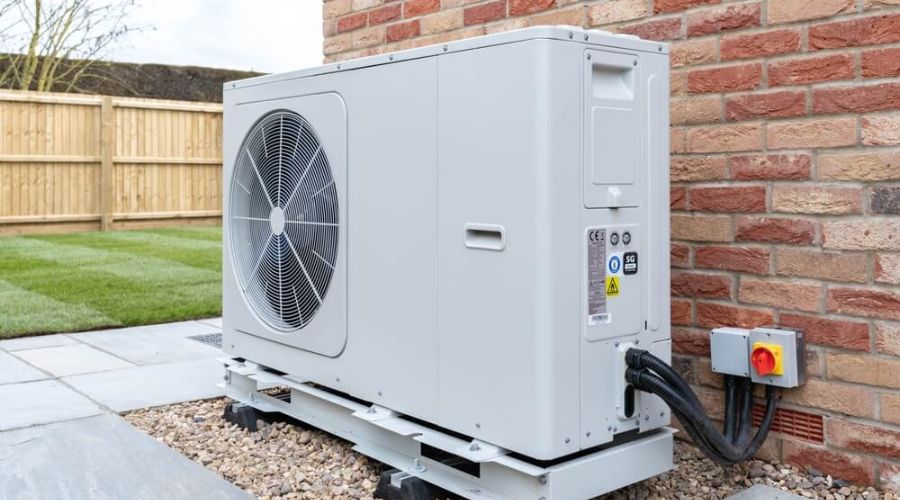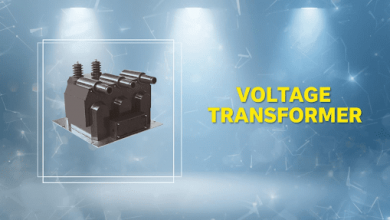The Benefits of Switching to an Energy-Efficient Heat Pump System

Many homeowners face the frustration of high energy bills and inefficient heating or cooling systems. These outdated systems often consume excessive energy, especially in extreme temperatures, leaving homeowners with sky-high utility bills and a larger carbon footprint. The real problem isn’t just the cost of running these systems, but the lack of energy-efficient alternatives that could help save money and improve comfort year-round. Switching to an energy-efficient heat pump system offers a solution, providing both heating and cooling in one, while significantly reducing energy consumption and long-term costs.
A heat pump is a device that transfers heat from one place to another, rather than generating heat like traditional heating systems. It works by moving heat from the air, ground, or water into your home during the winter to warm it, and reversing the process in the summer to cool it down. This method is far more energy-efficient compared to conventional systems that create heat by burning fuel or using electric resistance.
How Heat Pumps Work
Heat pumps operate on the principle of transferring heat instead of creating it. During colder months, they extract heat from the outside air or ground and bring it inside. Even in cold temperatures, there is still heat in the air or earth that the pump can utilize. In the warmer months, the process reverses, with the pump removing heat from your home and releasing it outside to cool your living spaces.
Comparison with Traditional Heating and Cooling Systems
Heat pumps offer a more sustainable and energy-efficient alternative to traditional heating and cooling methods. Traditional systems, such as electric resistance heaters and air conditioners, generate heat or cool air using significant amounts of energy, leading to higher bills and more environmental impact. Heat pumps, however, simply move heat and use less energy, providing more efficient heating and cooling solutions for homeowners.
| System Type | How It Works | Energy Efficiency |
| Heat Pump | Transfers heat from air/ground/water | More energy-efficient |
| Traditional Heating | Generates heat through electricity | Less efficient, higher bills |
| Air Conditioner | Removes heat from the air | Requires separate system |
Benefits of Switching to an Energy-Efficient Heat Pump
Significant Energy Savings
One of the biggest advantages of heat pumps is their energy efficiency. Heat pumps can reduce energy usage for heating by up to 75% compared to electric resistance heating, making them an excellent choice for homeowners looking to cut energy costs without sacrificing comfort.
Lower Utility Bills
Because heat pumps consume less energy than traditional systems, they can help significantly lower your monthly utility bills. Over time, the savings can make up for the initial installation costs, leading to long-term financial benefits.
Reduced Carbon Footprint
Heat pumps use electricity rather than fossil fuels like natural gas or oil. This helps to reduce greenhouse gas emissions and makes them an environmentally friendly choice for homeowners looking to lower their carbon footprint while keeping their homes comfortable.
Dual Functionality
Heat pumps provide both heating and cooling, eliminating the need for separate systems for summer and winter. This not only saves space but also reduces the upfront and ongoing costs associated with maintaining two different systems.
Enhanced Comfort
Modern heat pumps offer more than just efficiency. They provide steady, consistent temperatures year-round and improve indoor air quality by filtering out dust, allergens, and other particles. This helps ensure that your home remains comfortable and healthy, regardless of the season.
Financial Incentives and Rebates
Government Programs and Incentives
Switching to an energy-efficient heat pump system can be more affordable thanks to various government incentives. Many federal and state programs offer rebates, tax credits, and other financial incentives to help offset the initial installation costs. These incentives are designed to encourage homeowners to invest in energy-efficient technologies, reducing both their energy consumption and environmental impact.
Examples of Potential Savings
- Federal Tax Credits: Tax credits are available for homeowners who install energy-efficient systems, including heat pumps.
- State-Specific Rebates: Many states offer rebates or financial incentives to reduce the cost of installing a heat pump, making the system even more affordable.
Long-Term Return on Investment
While the upfront cost of installing a heat pump may be higher compared to traditional heating and cooling systems, the long-term savings can make it a worthwhile investment. Energy-efficient heat pumps can significantly lower your utility bills over time, helping to recoup the initial installation costs. In a few years, the money saved on energy bills can offset the extra investment, making heat pumps a financially sound choice for many homeowners.
Considerations Before Installation
Climate Compatibility
Heat pumps are most effective in moderate climates where temperatures don’t frequently dip below freezing. In areas with extreme cold, a ground-source heat pump or a hybrid system that combines a heat pump with a backup heating system might be necessary to ensure efficient heating. It’s important to assess your local climate and choose a heat pump system that is best suited for your region’s conditions.
Home Insulation
Proper insulation is crucial for maximizing the efficiency of your heat pump. A well-insulated home retains heat during the winter and stays cool in the summer, allowing the heat pump to operate more effectively. If your home has poor insulation, it may require upgrades to ensure that the heat pump can perform at its best without wasting energy.
System Sizing
Choosing the right-sized heat pump is essential for achieving optimal performance. A system that is too small may struggle to heat or cool your home effectively, while an oversized system will waste energy. A professional assessment will help determine the ideal size based on your home’s square footage, insulation, and climate.
Installation Process Overview
Professional Assessment
Before installing a heat pump, it’s important to consult with certified professionals who can assess your home and recommend the best system for your needs. They will evaluate factors like home size, insulation, and local climate to ensure the system will work efficiently and effectively.
Steps in the Installation Process
- Site Inspection and System Design: A professional will assess your home and design a system tailored to your needs.
- Equipment Placement and Installation: The indoor and outdoor units will be installed in suitable locations to ensure optimal performance.
- System Testing: After installation, the system will be tested to ensure it is working properly and efficiently.
Post-Installation Support
Once your heat pump is installed, regular maintenance and servicing are key to ensuring it continues to run smoothly. Many manufacturers offer warranty coverage for parts and labor, and professional technicians can provide annual checkups to maintain system efficiency and extend its lifespan.
Maintenance and Longevity
Routine Maintenance
To keep your heat pump running efficiently, regular maintenance is essential. Simple tasks like cleaning the filters, inspecting the coils, and checking refrigerant levels can help maintain its performance. These tasks prevent the system from overworking and ensure it operates efficiently throughout the year, avoiding unnecessary strain and reducing the need for costly repairs.
Common Issues and Troubleshooting
While heat pumps are generally reliable, you may encounter some common issues over time. If you notice uneven temperatures, strange noises, or poor airflow, these could be signs of a problem that needs attention. Issues like dirty filters, blocked ducts, or low refrigerant can all impact the system’s performance, so it’s important to address them quickly to avoid more serious problems down the line.
Extending the Life of Your Heat Pump
Regular servicing and early identification of any problems can help extend the life of your heat pump. By scheduling annual checkups with a professional technician, you can ensure that your system stays in optimal condition, runs smoothly, and continues to provide energy-efficient performance for years. Routine maintenance can prevent small issues from turning into expensive repairs and help your system operate at peak efficiency.
Conclusion
Switching to an energy-efficient heat pump system offers numerous benefits, including significant energy savings, a reduced carbon footprint, and year-round comfort. Heat pumps provide a sustainable and cost-effective way to maintain a comfortable home, all while lowering energy consumption and contributing to a greener planet. Investing in a heat pump is a smart decision for homeowners who want to save money on energy bills while also reducing their environmental impact. With proper installation and maintenance, a heat pump can provide reliable, long-term benefits, making it a worthwhile choice for both your home and the environment.

Source: The Benefits of Switching to an Energy-Efficient Heat Pump System




